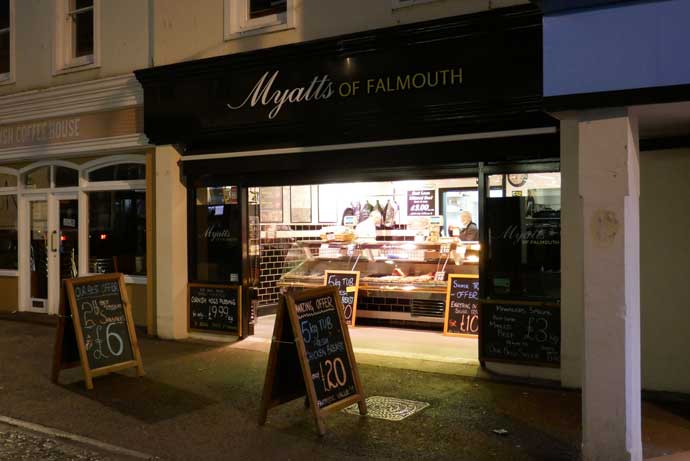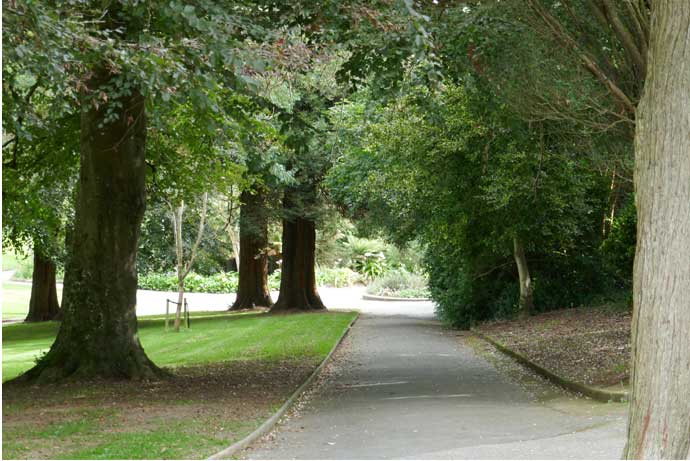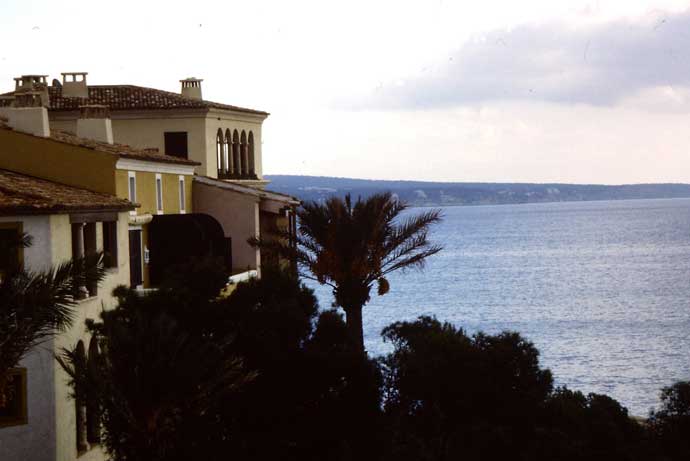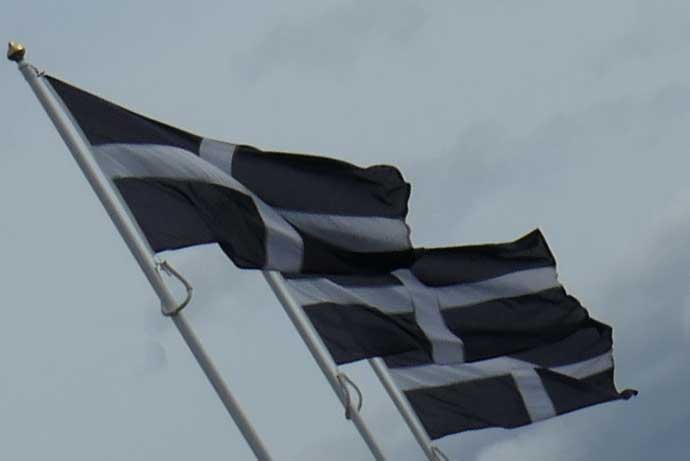I came to real adulthood at the entrance to Holland Park tube station, a century ago, on the way to work (my first job). Back then, I used to buy a newspaper every morning, from a man behind stacks of newspapers in a small shed. Every morning, he'd take my money, and as he folded and passed across my newspaper, he'd say: "There you go, guv!" Occasionally, we'd share a brief insight into the weather, or the state of the traffic on Holland Park Avenue, but most days, it was just: "There you go, guv!" And I'd go underground to the Central Line and head for Chancery Lane.
I liked being "guv". Not that I actually thought about it until - but I'm jumping ahead. Being "guv" - being called "guv", I mean - made me feel that I belonged in the adult world (looking back from today, I was so young). It was an acknowledgement; in a small way, a status. Not to make too much of it, and I didn't think about it at all until - nearly there. For the purpose of this telling, my role as "guv" signified adulthood and I liked it for that.
Except that it didn't. I went away for a month, or at least a period longer than my routine holiday absences. Don't remember why, don't remember how long, but I do remember that when I got back, the man in the shed, my regular newspaper provider, had forgotten me. He didn't recognise me. Or if he did (I don't think he did; I'm just overthinking this), his perception was that I had changed. On that first morning back, the morning that made all this memorable to me, I handed over my money, and as he folded and passed across my newspaper, he said: "There you go, young man!"
Young man. It was a significant transition. I've been "young man" ever since. "Young man" to the man behind the counter in the butcher here, Myatts; "young man" to every other "You're not old!" man, and occasionally woman, with whom I trade a small amount of money for - you know the transactions I mean*. I was "young man" before and after the transition into fatherhood. I don't know what comes after "young man", perhaps just a tone of voice and a nurse's hand on my arm (or a bus driver's), and of course there's no correlation between the introduction of youth into the conversation as we get older, and the belief among spiritual types that when we die, we come at last into life. But ... we go from phrase to phrase, and each one means more than the year-number of its arrival.
Wait - it's not just phrases; it's whole descriptions. I've just looked up The Stages Of Life System In Hindu Society, because I've had conversations about that and I've just remembered it, and (ignoring the pop-up ad for "breathable ice silk boxers" - cor!) I find that I'm at a much more interesting age than any number could possibly convey. More convincingly described, as well, in that stages shade into each other and aren't clock-dependent. I was born in August, not in "8" as the date-of-birth forms would insist, and in years, I'm at a stage of my life's journey that really can't be captured by a number.
How old am I?
How long have you got?
*To women who are "Not old!", I'm usually "dear" or "darling", once "gorgeous" (I can take it), but only occasionally "young man" and never "guv". It's a different system. Like football.

Then I thought: what? That morning, the radio was telling me, repeatedly, on the hour, that "new footage has emerged" of an incident in which a sportsman (deliberately not naming names) had been involved in a "fracas" (the radio's word). The "fracas" happened on Monday night, so - I grumbled to the inert lump of plastic and metal that was doing the coherent talking in my kitchen at that time of the morning - the footage wasn't "new"; it dated back to Monday night. Some intrepid newshound had tracked it down in time to be included in this repeating loop of "news".
I should drink coffee before turning on the radio. Woke up this morning to an interview about a "new survey" that has "revealed" that a percentage of the population - might have been 25% - don't get any less racist over time. Wanted to ask the question that the interviewer didn't ask: was this a survey of one ethnic group's attitudes or - given that we live in a multi-racial society - of everybody's attitudes? The interview talked about attitudes to Muslims but not (that I heard) to Christians. Went afterwards to check it out, and found that "You now need to sign in. It's quick and easy. And we'll keep you signed in."
If it's quick and easy, why do you need to keep me - maybe two cups of coffee before I start. Clicked on the explanation bit - given that not so long ago, it was quick and easy because there was no need to sign in at all - and read that "This is so we can make the BBC more relevant and personal to you." Didn't really expect to find an "It's personal enough, thank you" button, or an "I'll be the judge of that" button, but scrolled down anyway past the "You're in charge" heading, and the "privacy promise" and the bit where they explain that privacy means they'll share my data with TV Licensing (three cups?) ... and went on to discover that the commercial channels' news websites don't impose a sign-in.
But this is just me griping. In the process, I failed to find any other mention of the racist-attitudes survey, so either it was a filler or I dreamed it. I realise that any body set up to stop something depends for its continued existence on the survival of the thing it's supposed to stop, but I also remember being told more than once, "Fake it till you make it", which I suppose is a cut-down version of Gandhi's injunction to "Be the change." On that basis, I guess the truly racist-attitude-changing approach would be to stop bothering people with questionnaires about their attitudes to eye colour, hair colour, skin colour, ethnic origin - stop reminding them to think about racism, so I won't start doing that.
Some of my best friends are - but that, too, would be singling them out for my purpose. Also, on a "Be the change" basis, I think today would be a good day to stop being the kind of person who finds a mistake and immediately thinks of social media. Let's assume that Karl was having a bad-hair day, or just setting off to a party in weirdly prescient* fancy dress and I didn't recognise him in the picture. Let's leave open the possibility that we all make mistakes, even in magazines, possibly even in blog posts, and leave it at that.
*Karl Marx died in 1883 and Groucho Marx was born in 1890 and feel free to point out that "Groucho" wasn't Groucho's given name**.
**You get one point for that immediate impulse to point out that "Groucho" wasn't Karl Marx's given name either. Go outside. Breathe the air.



